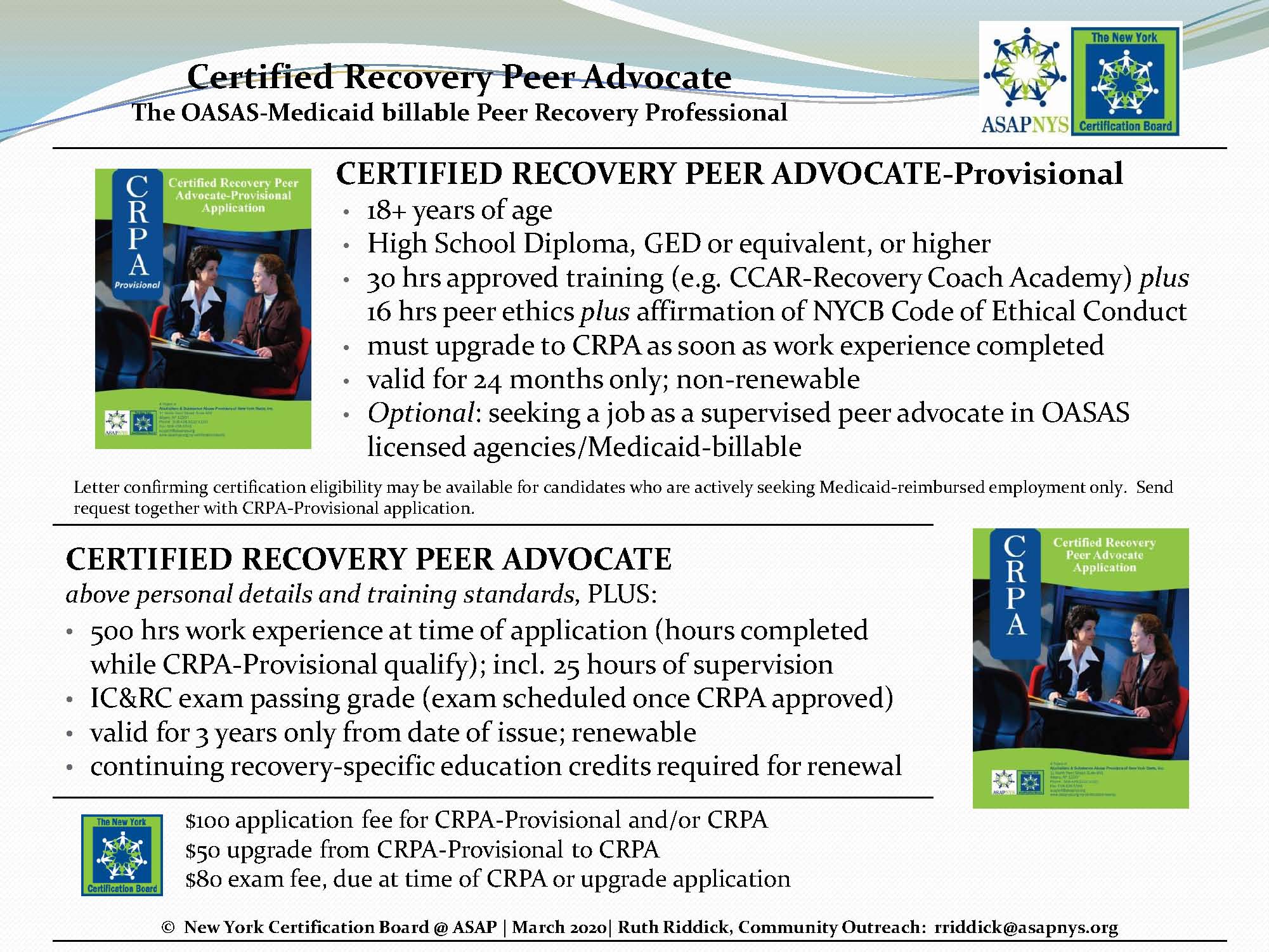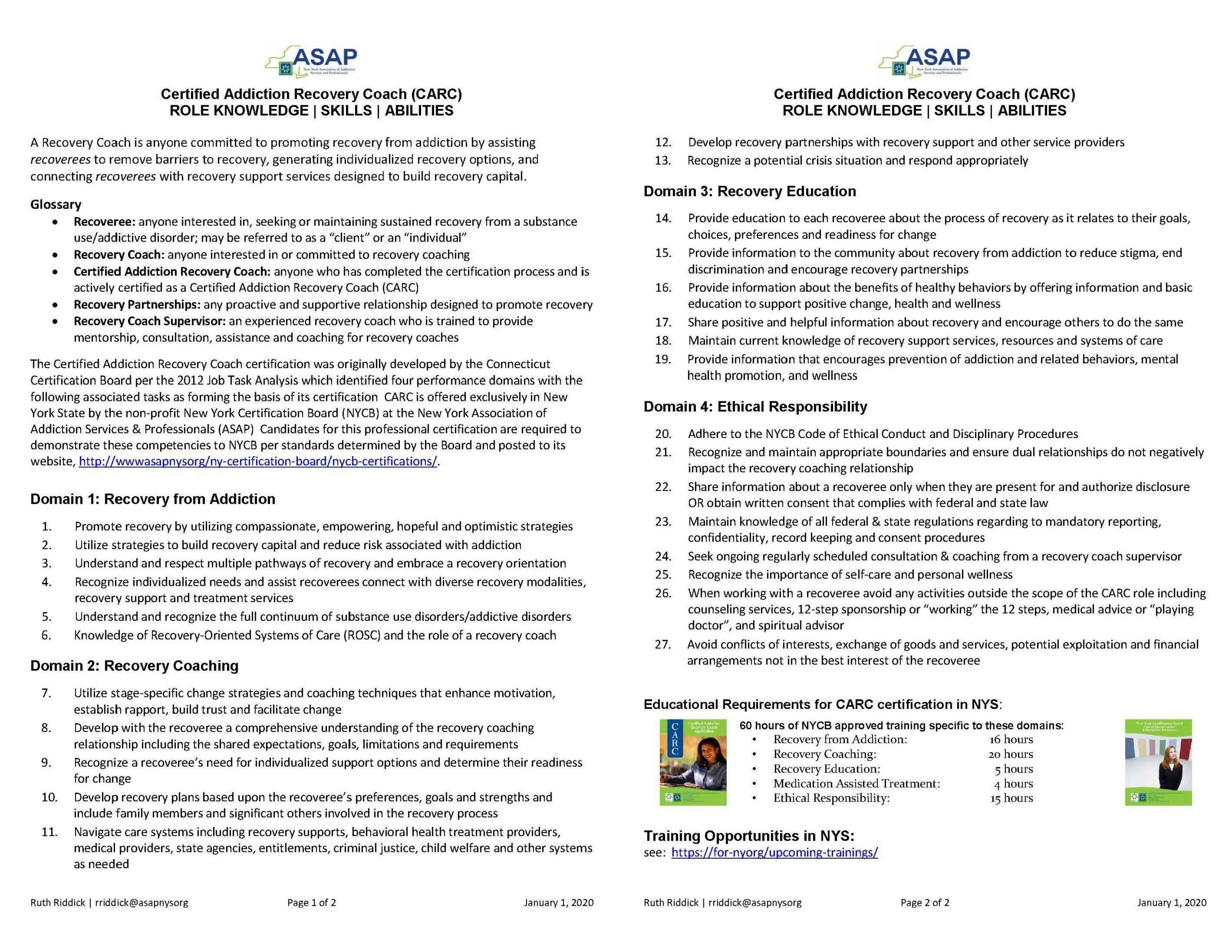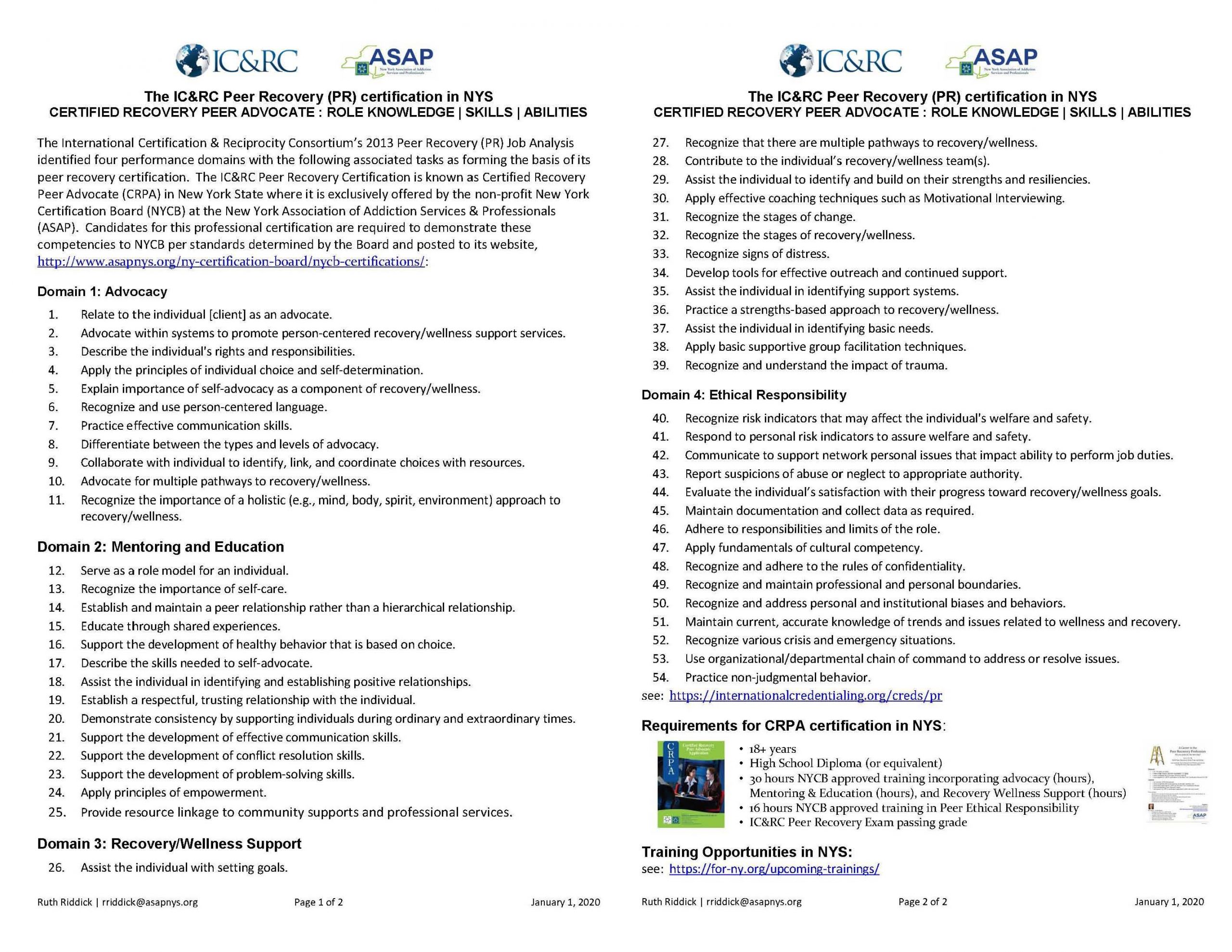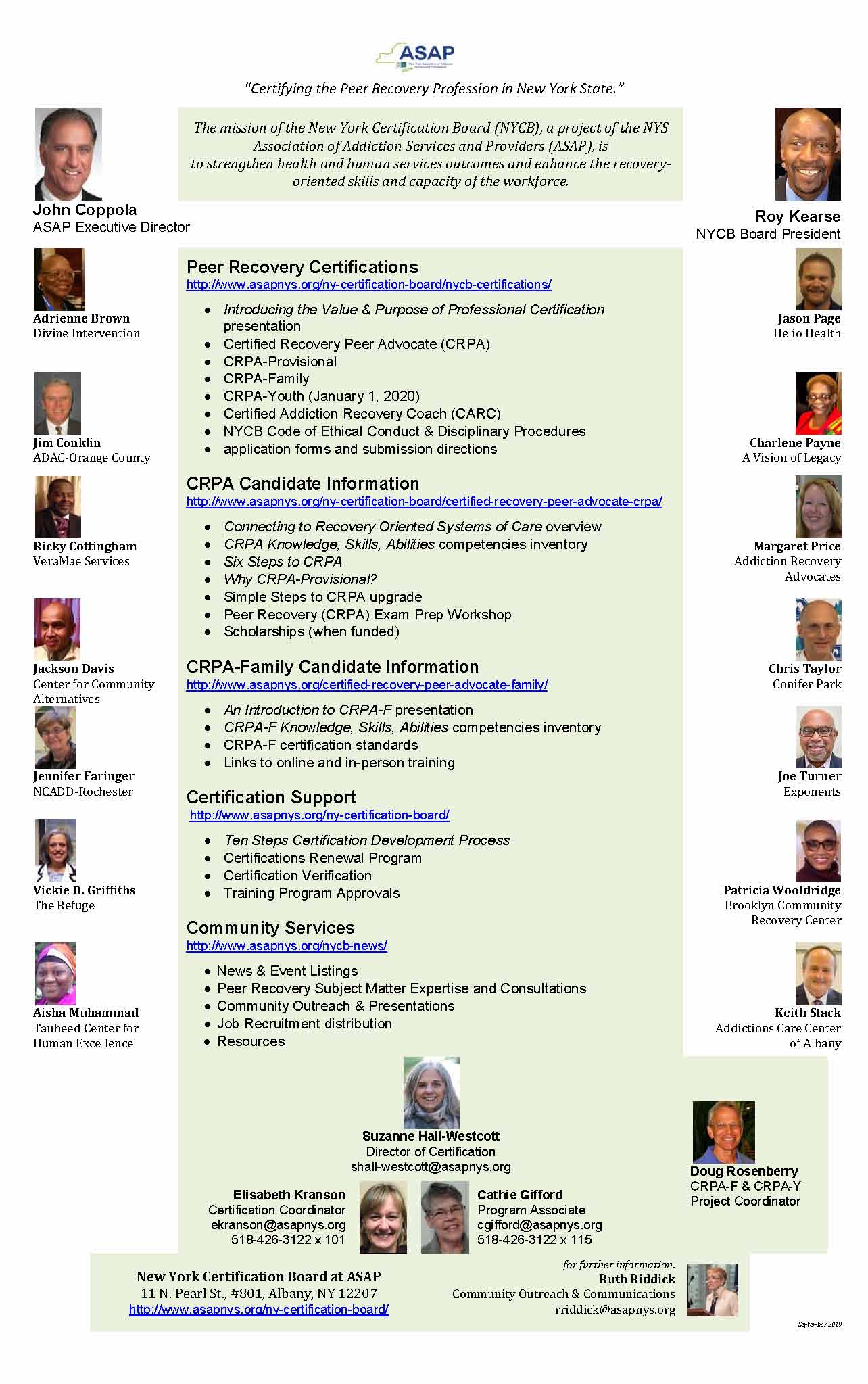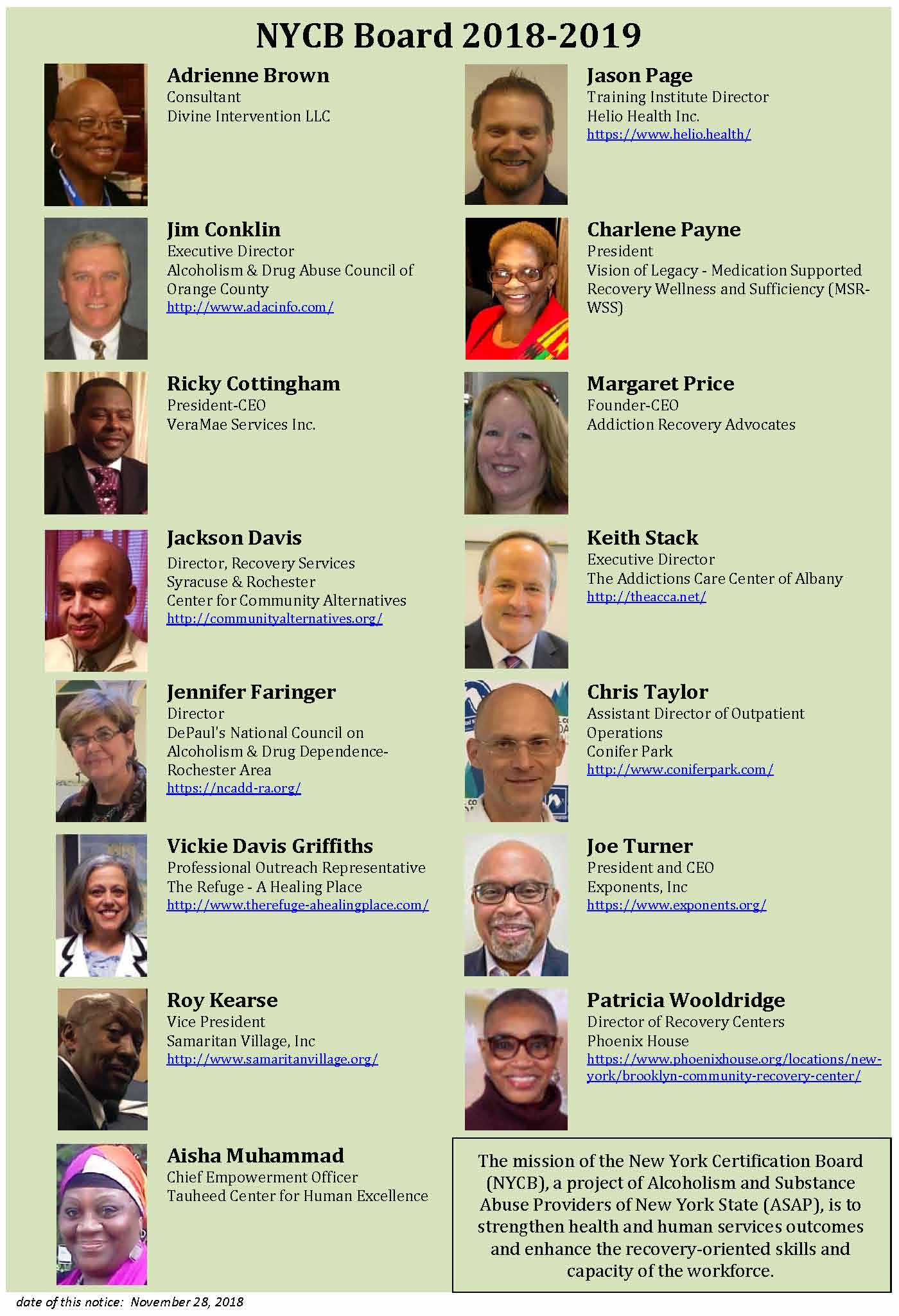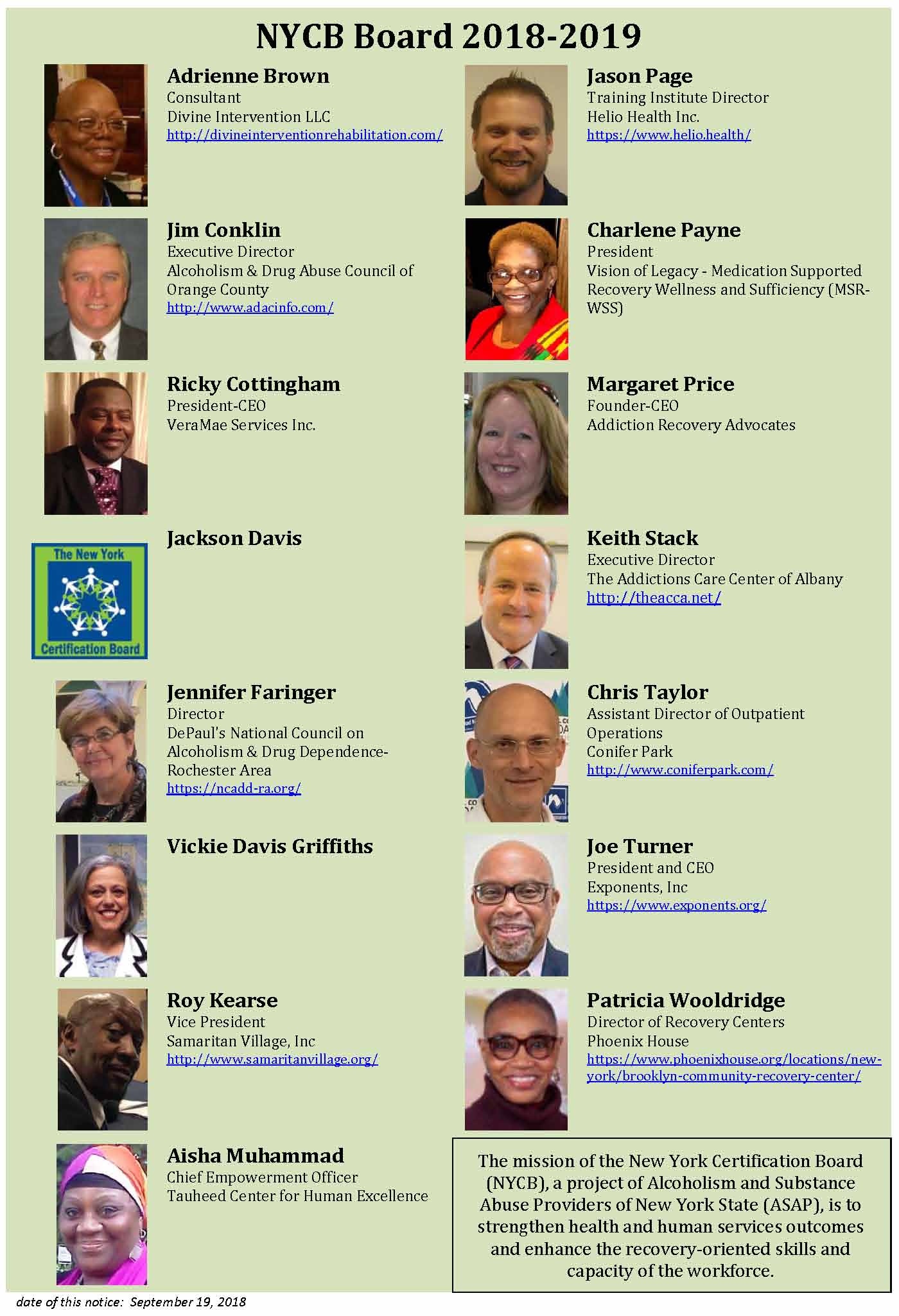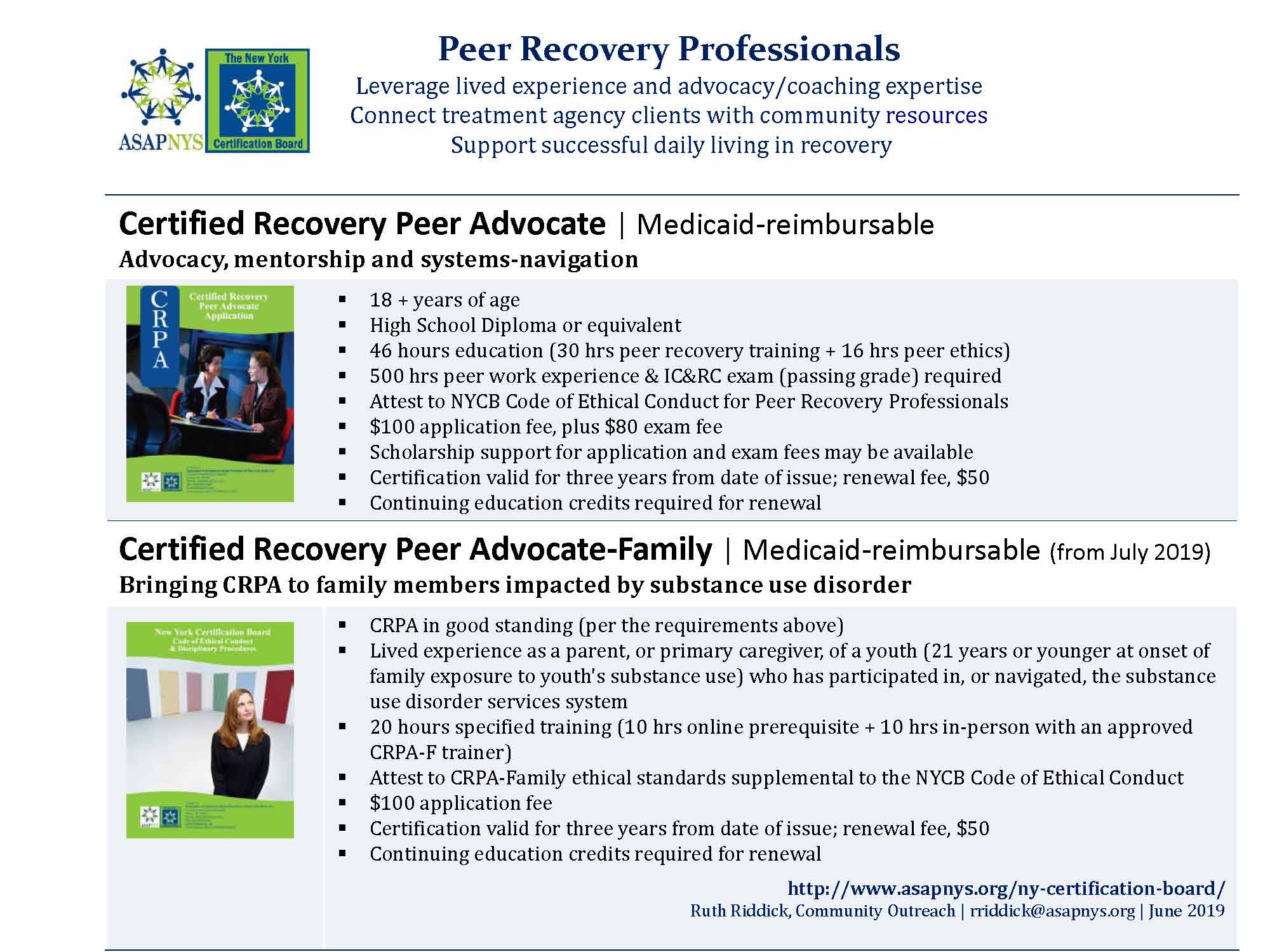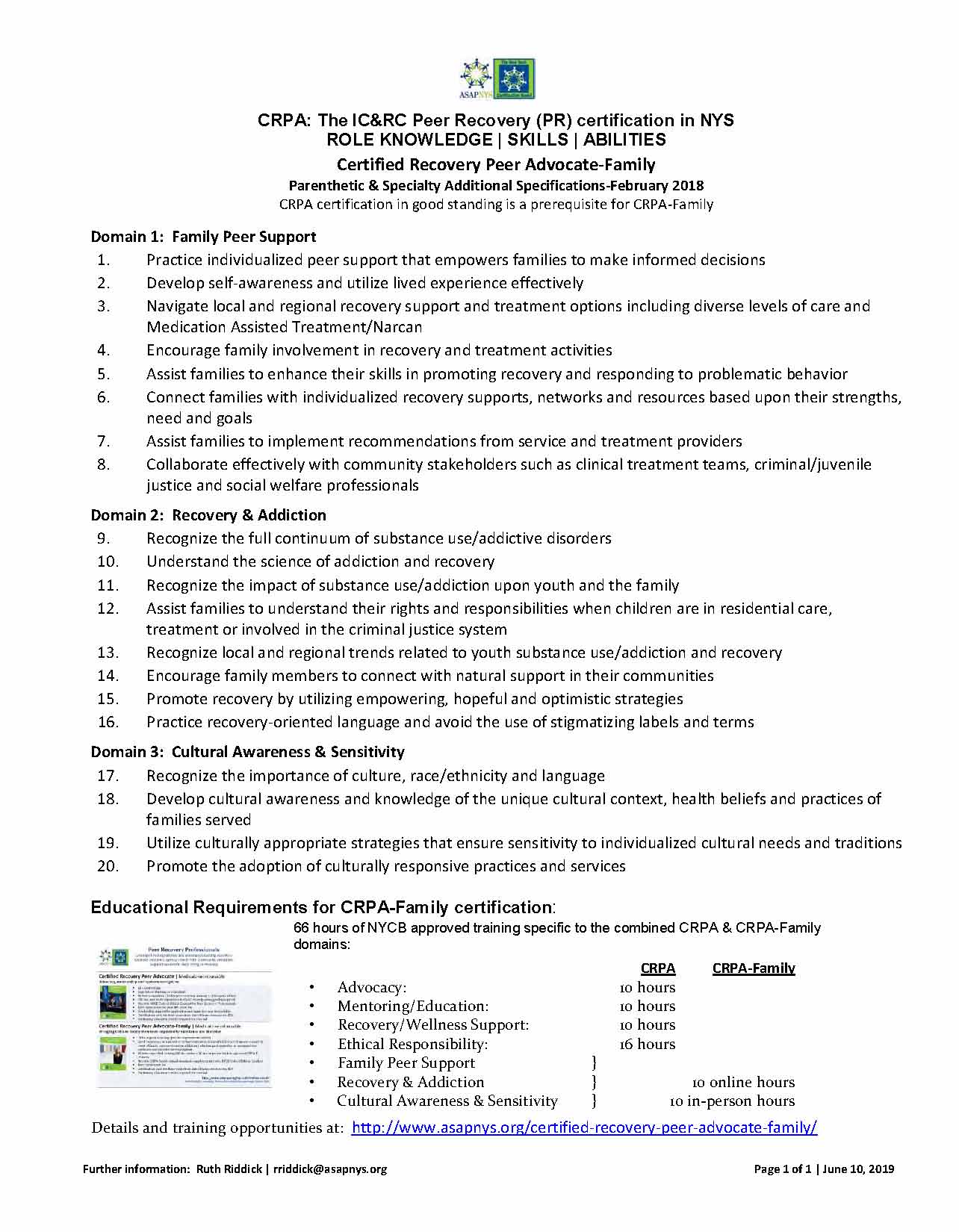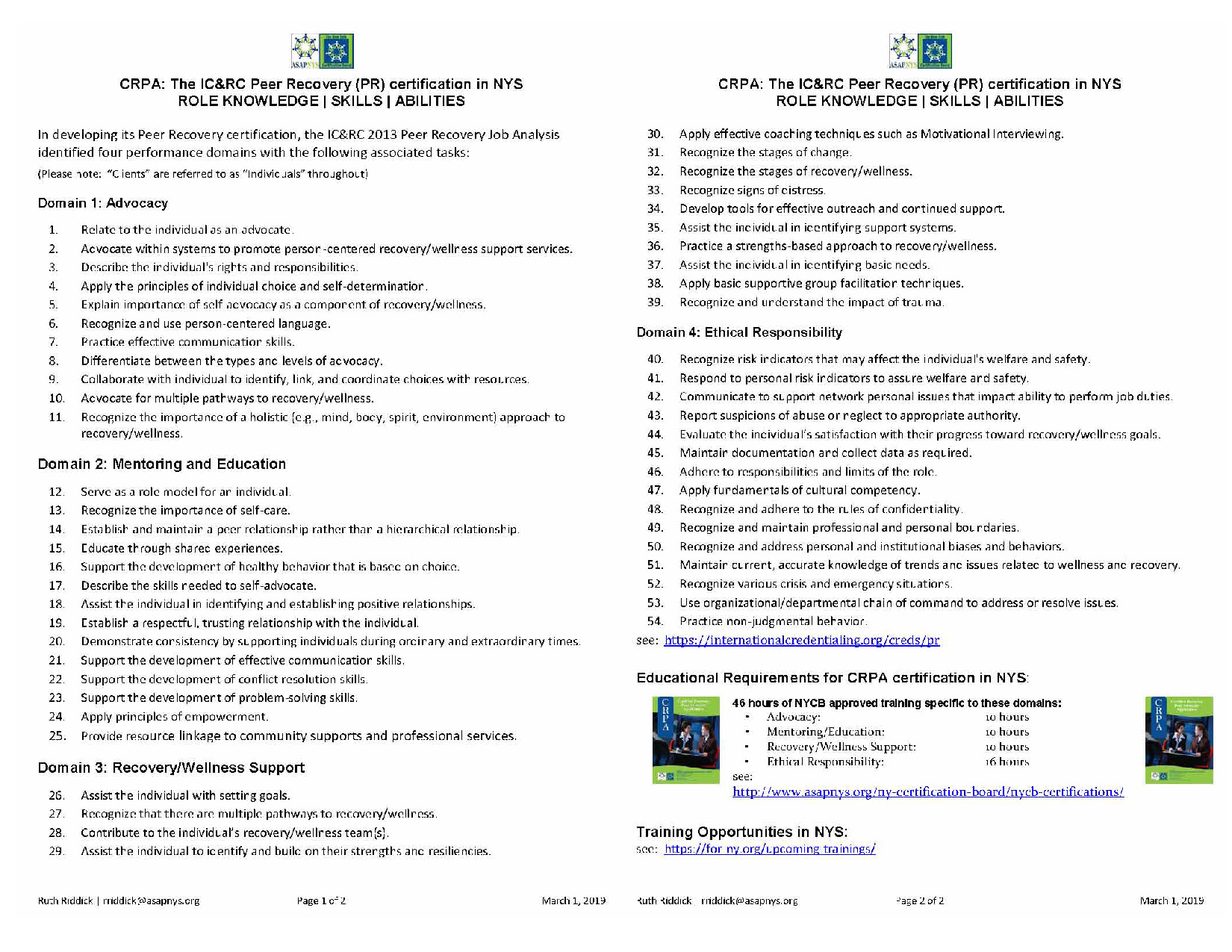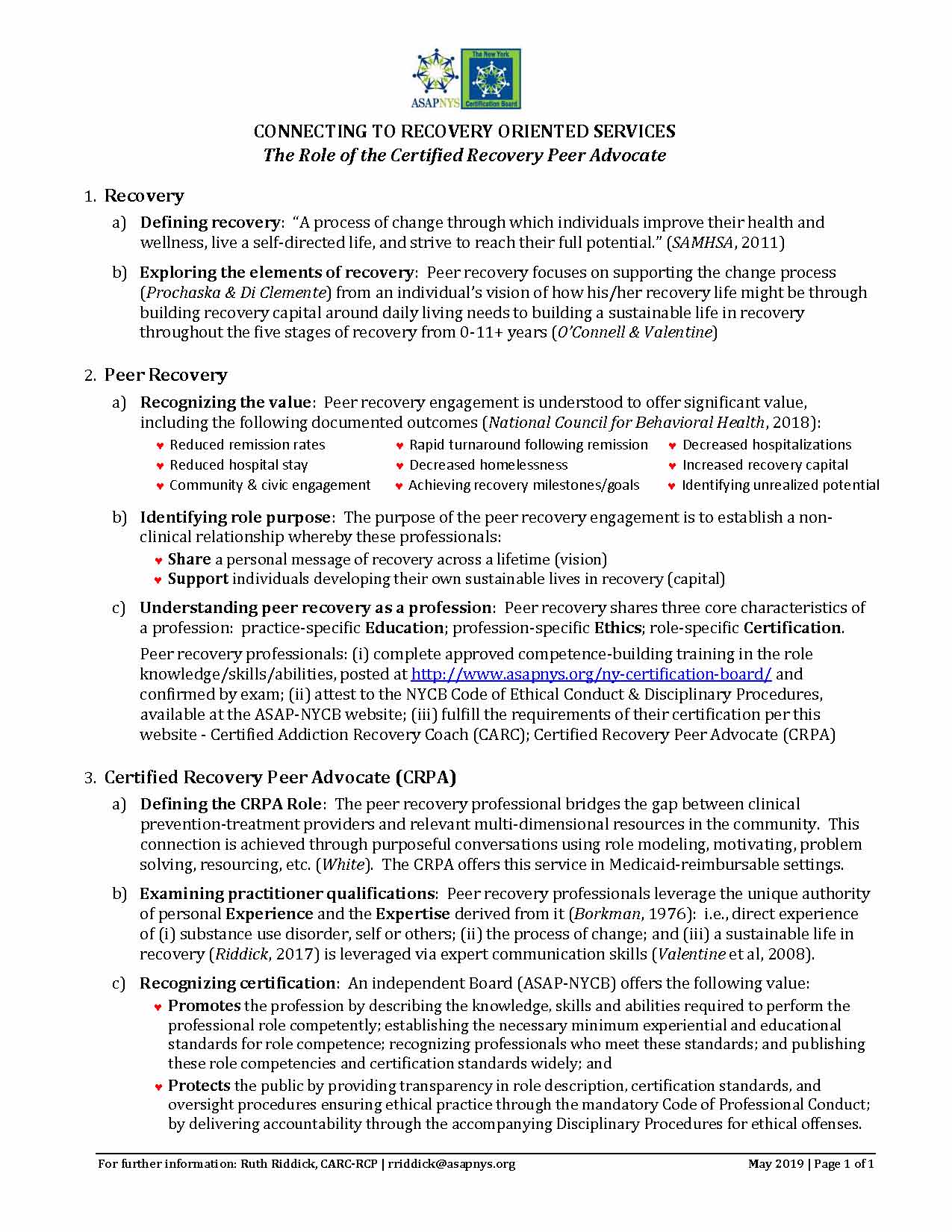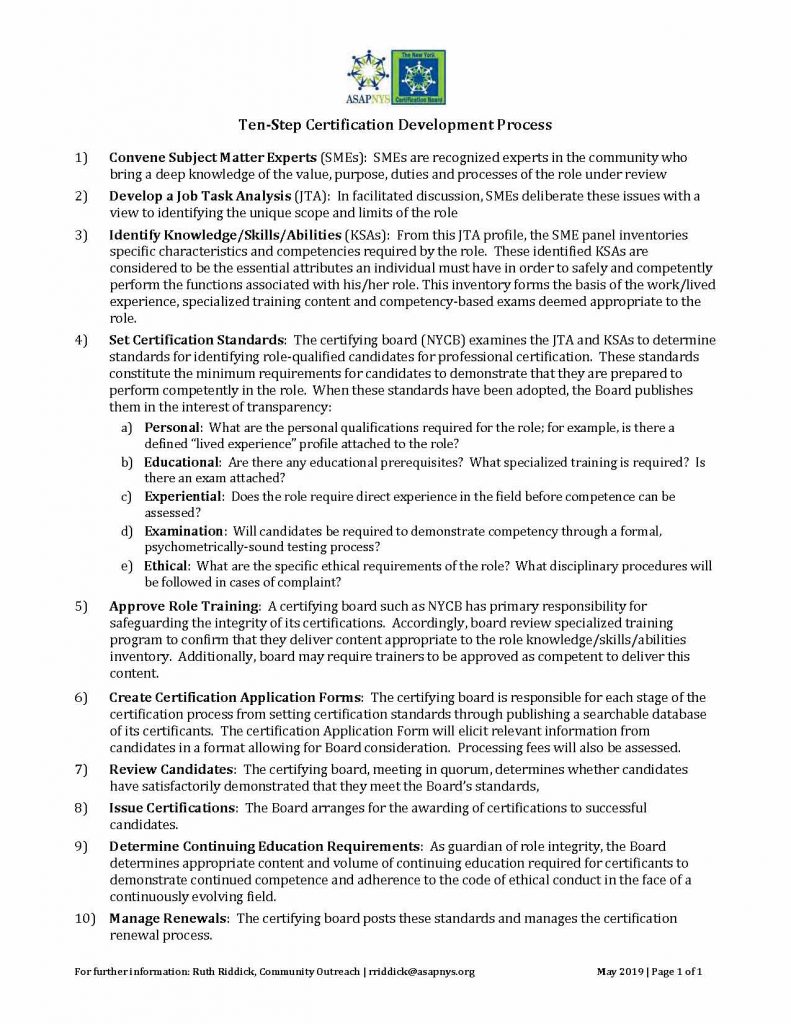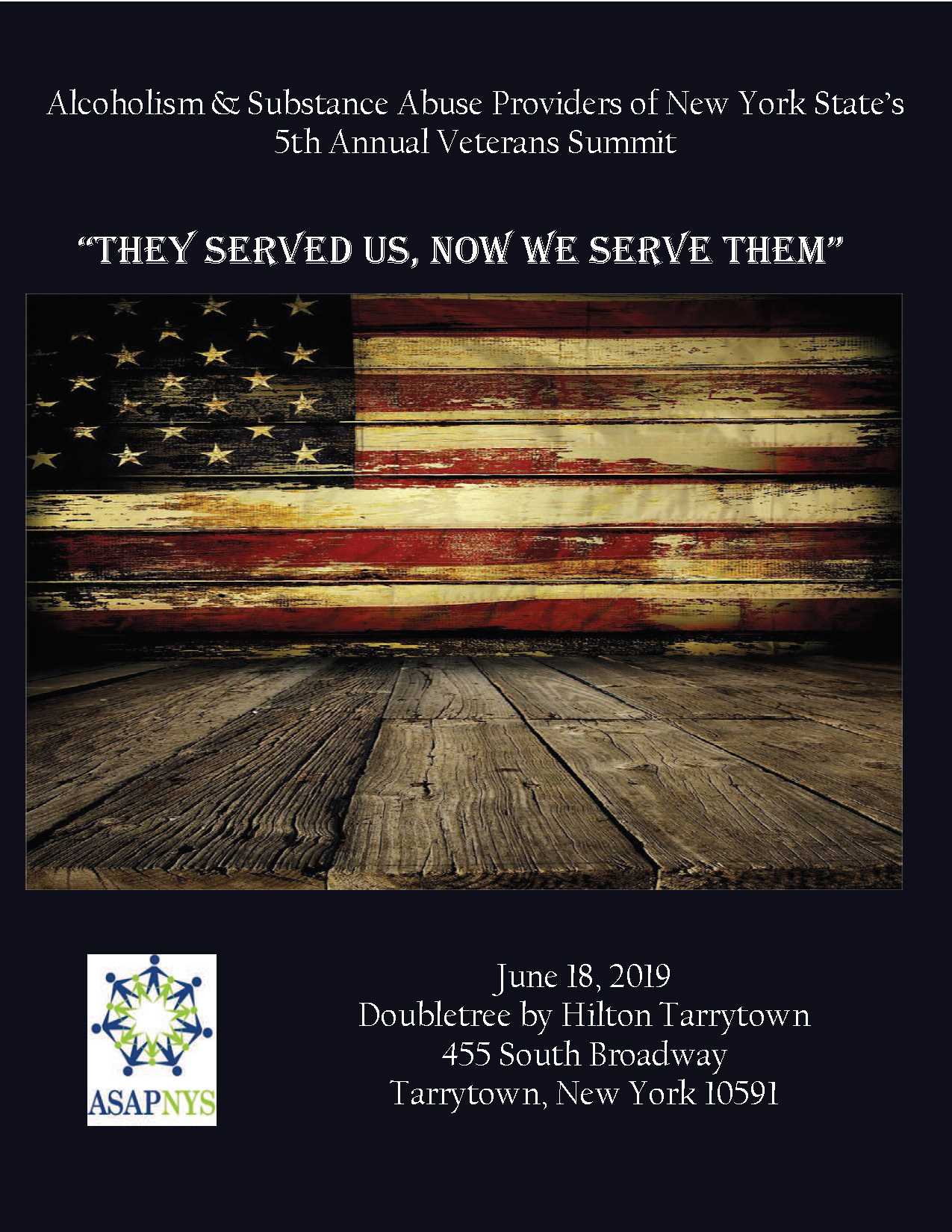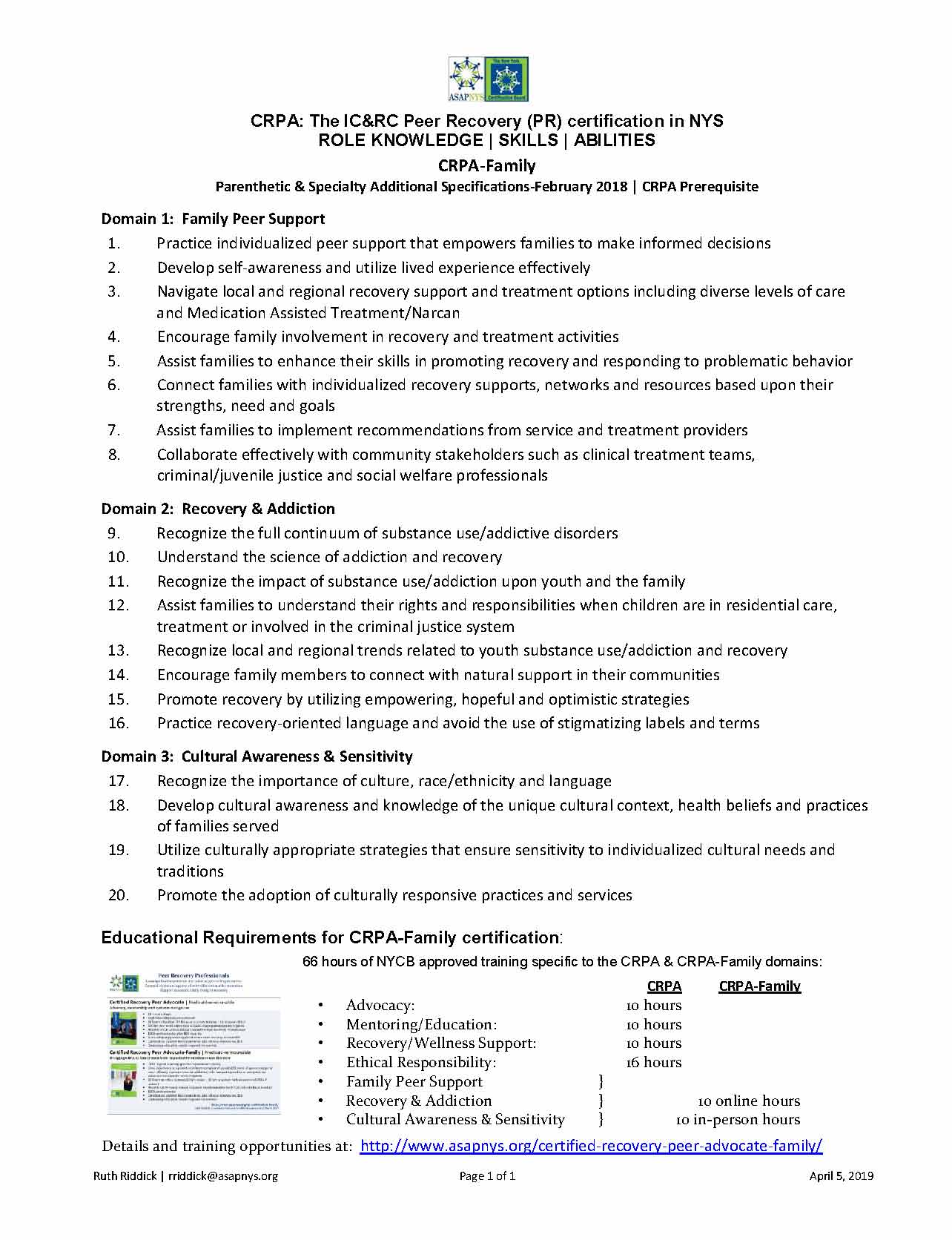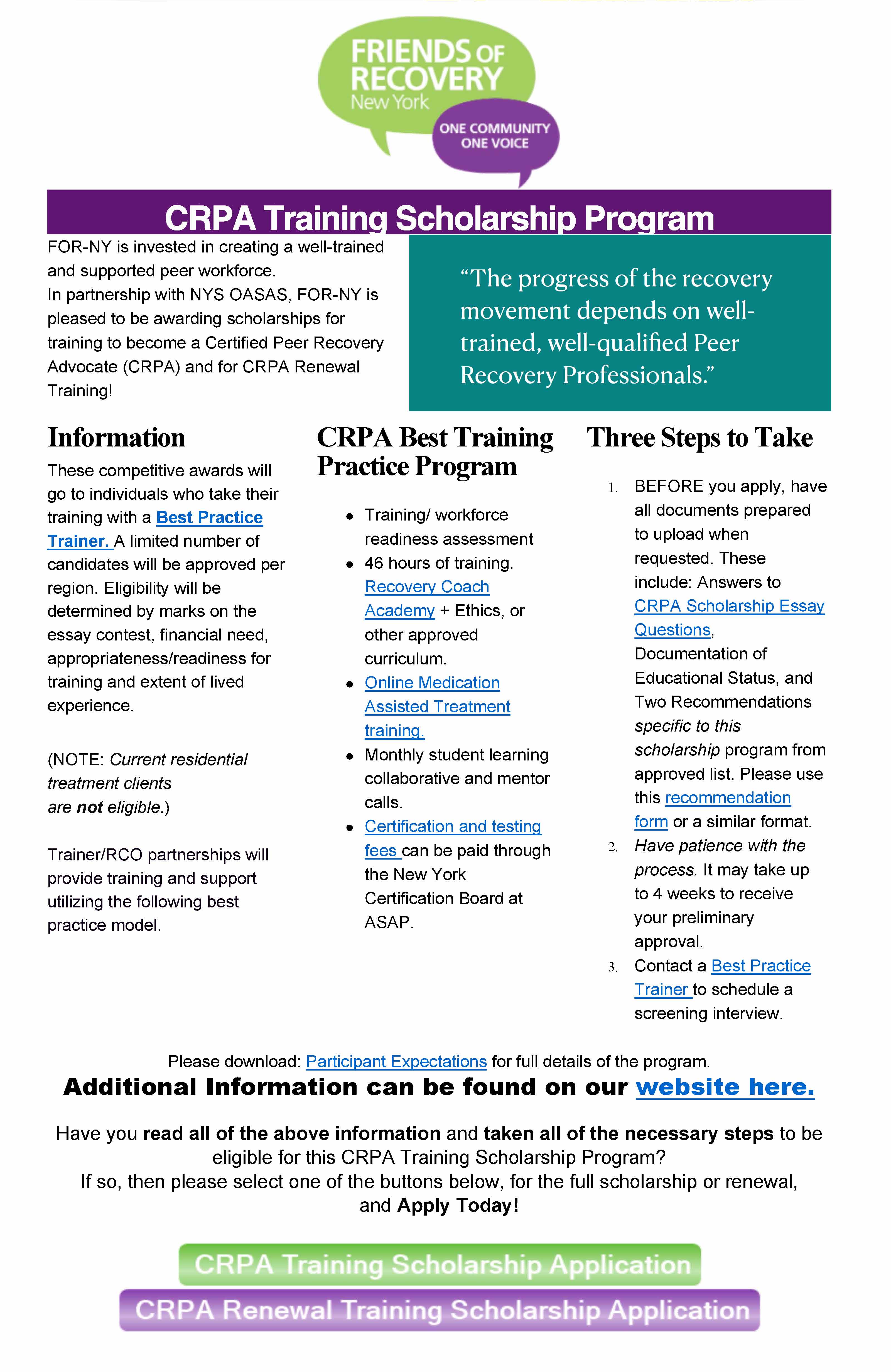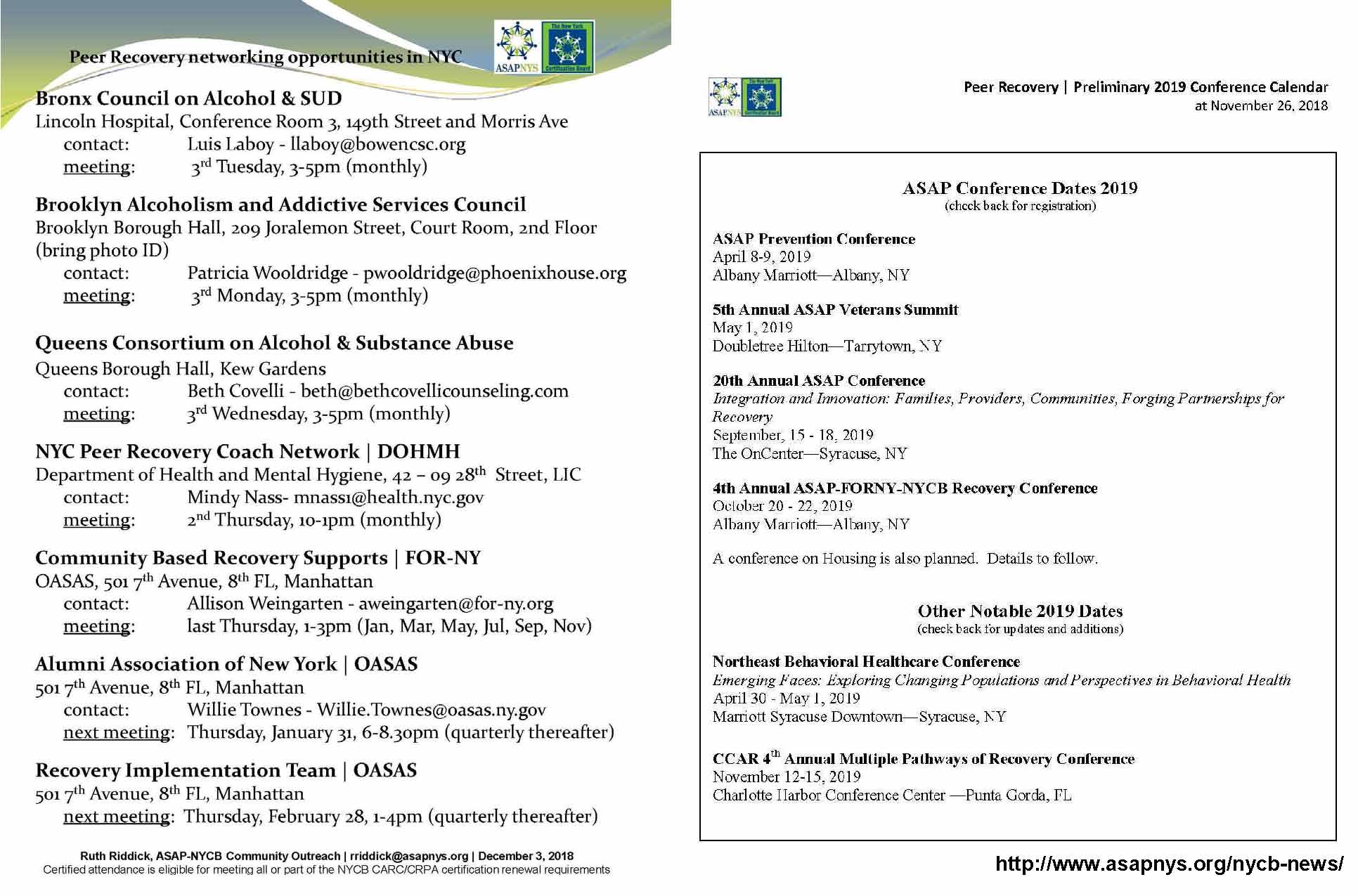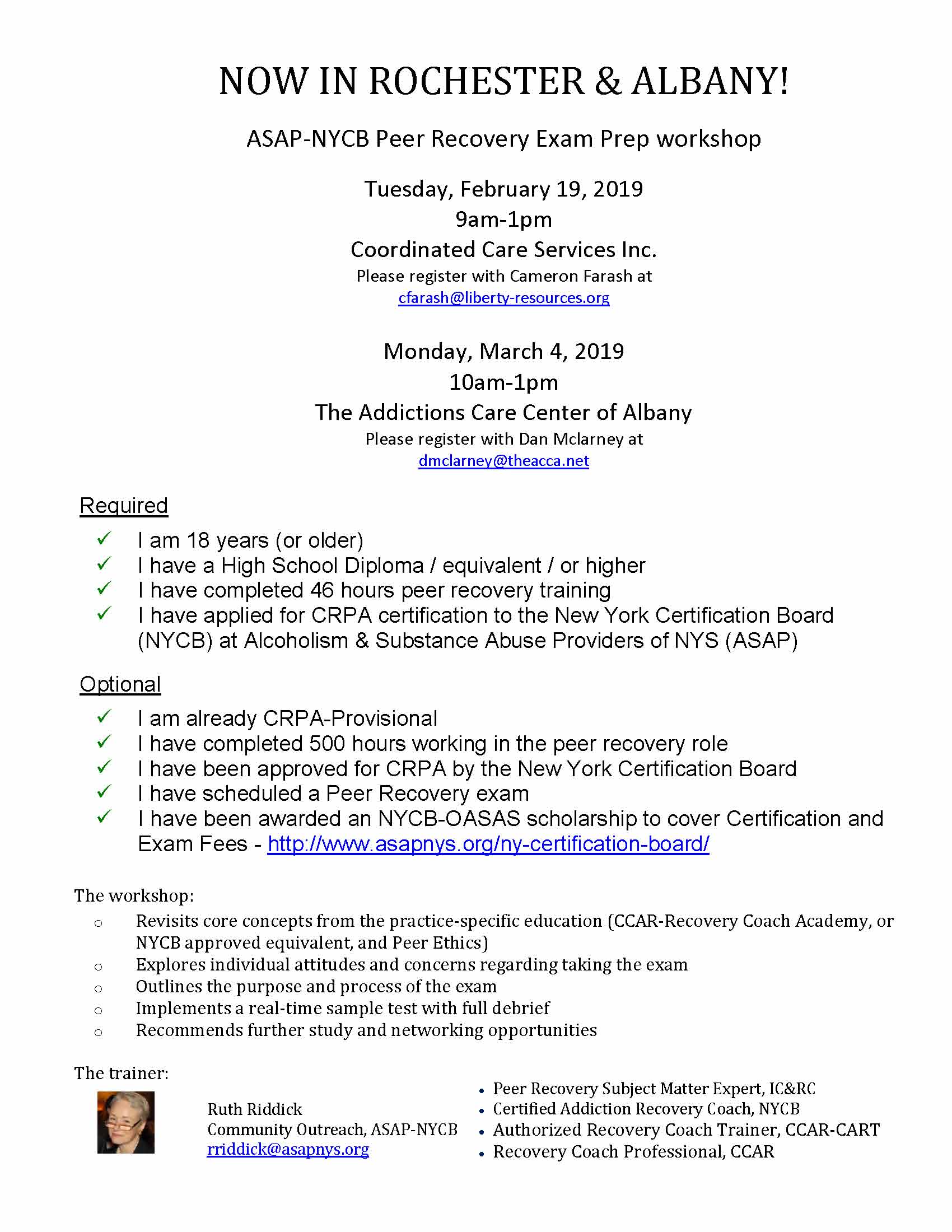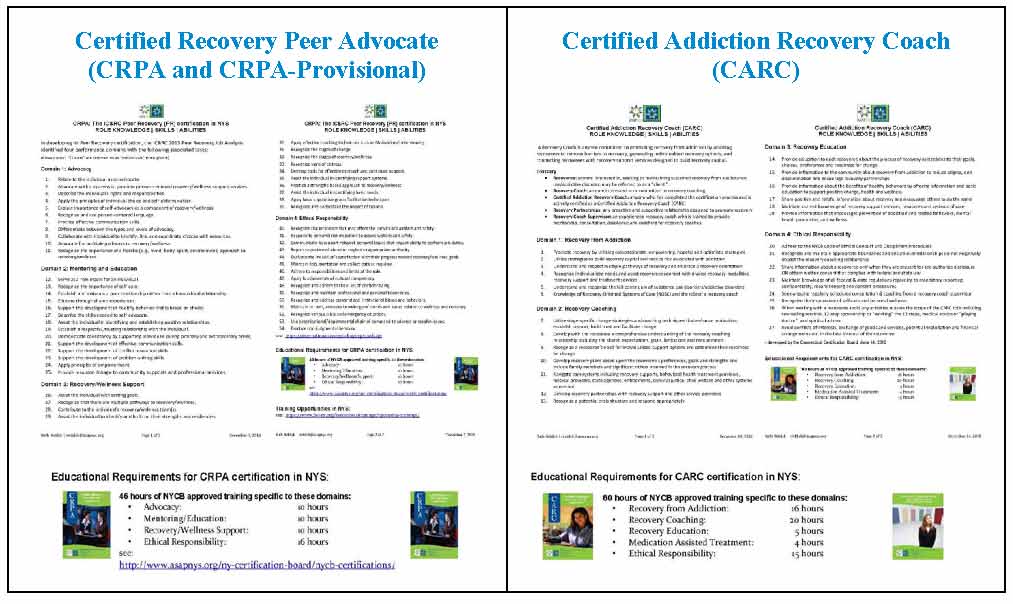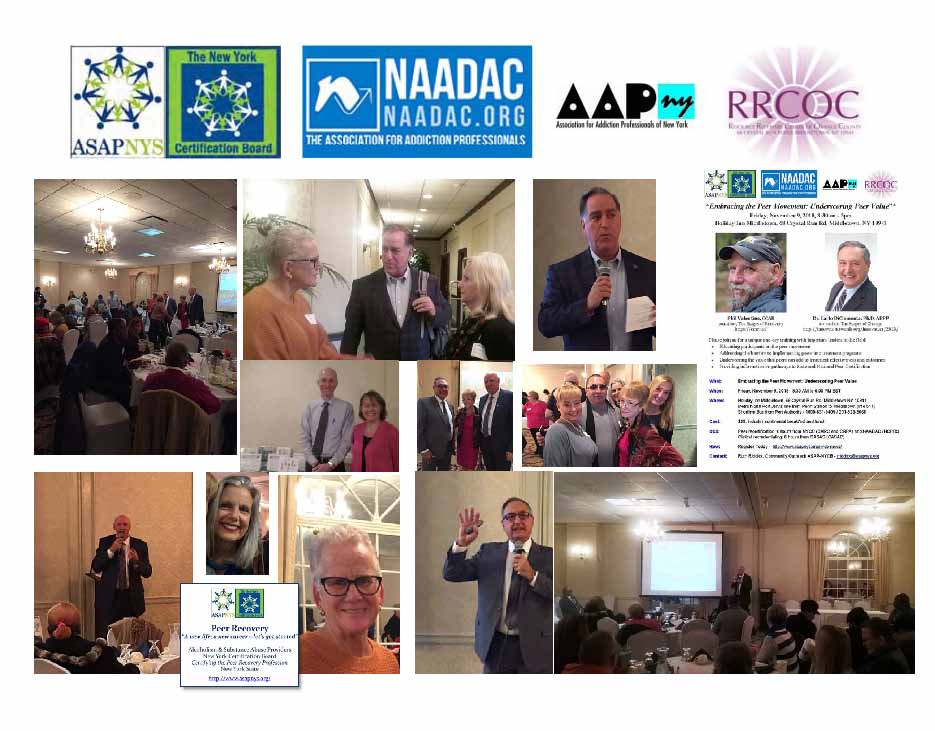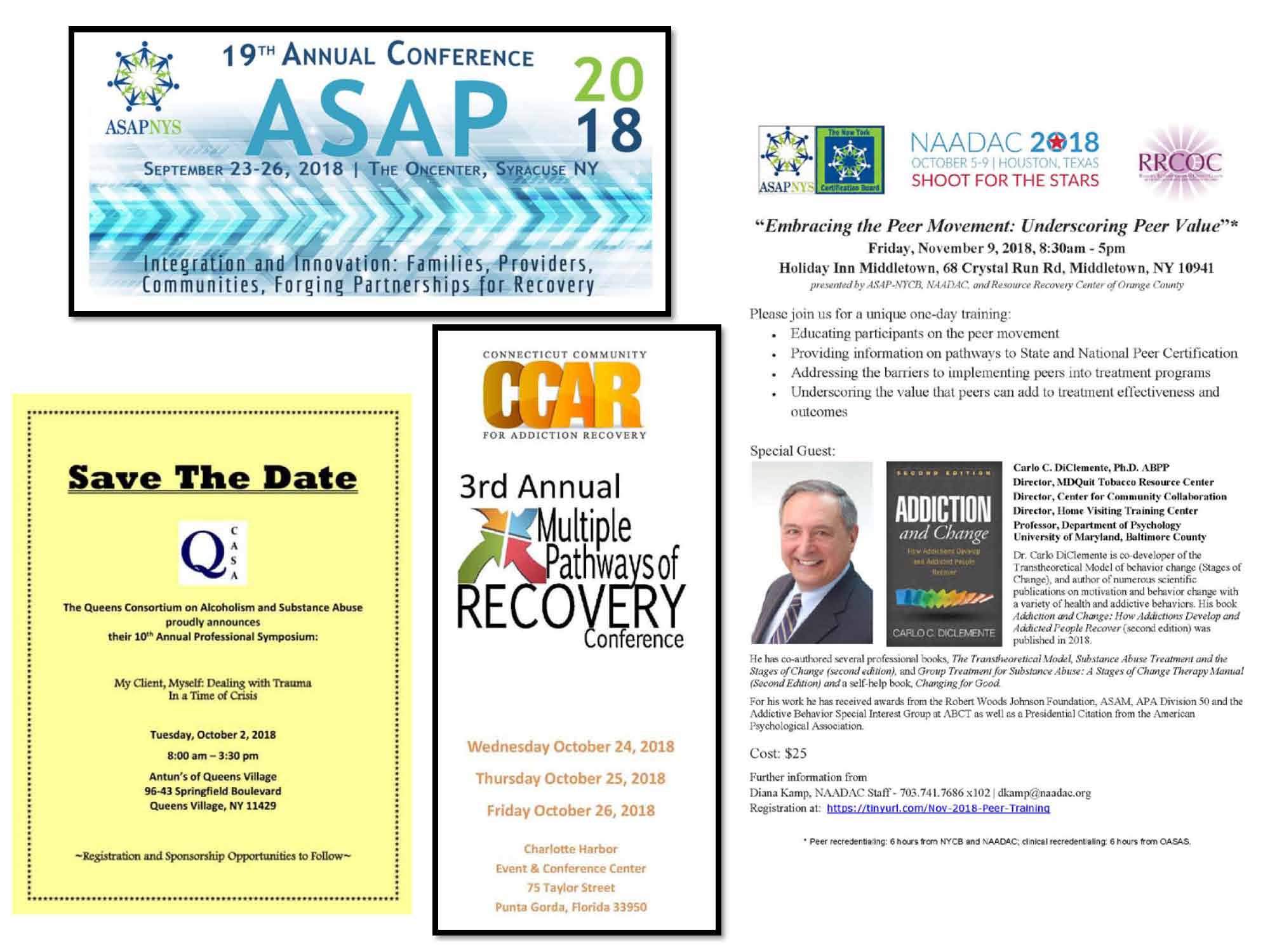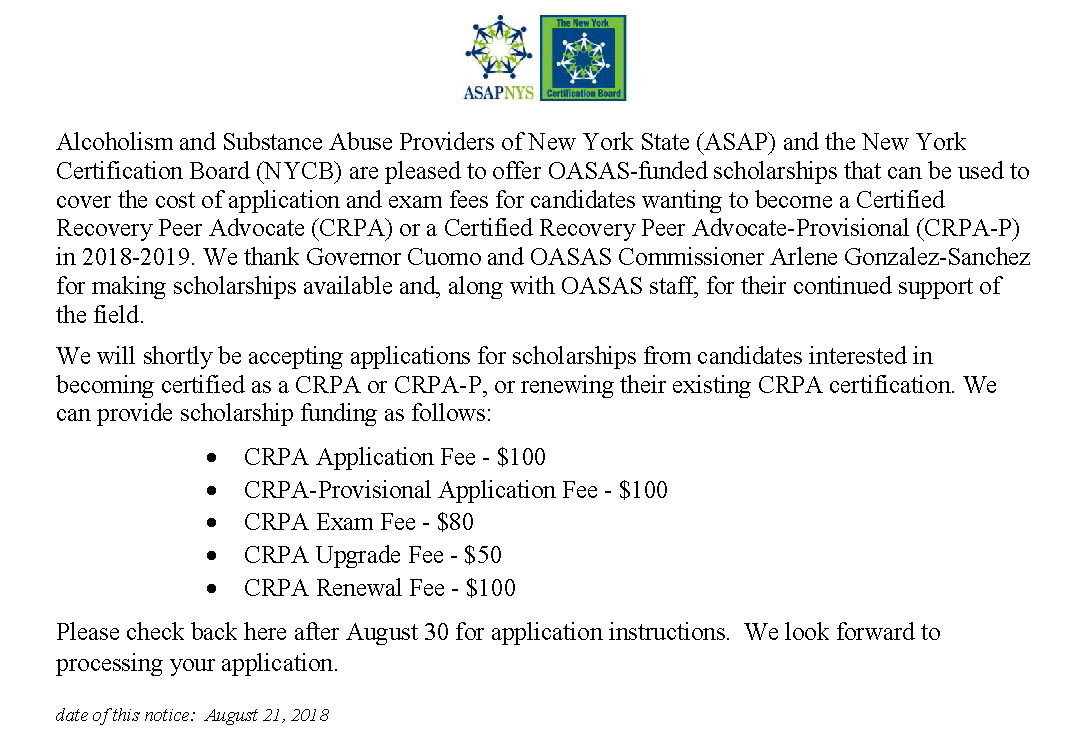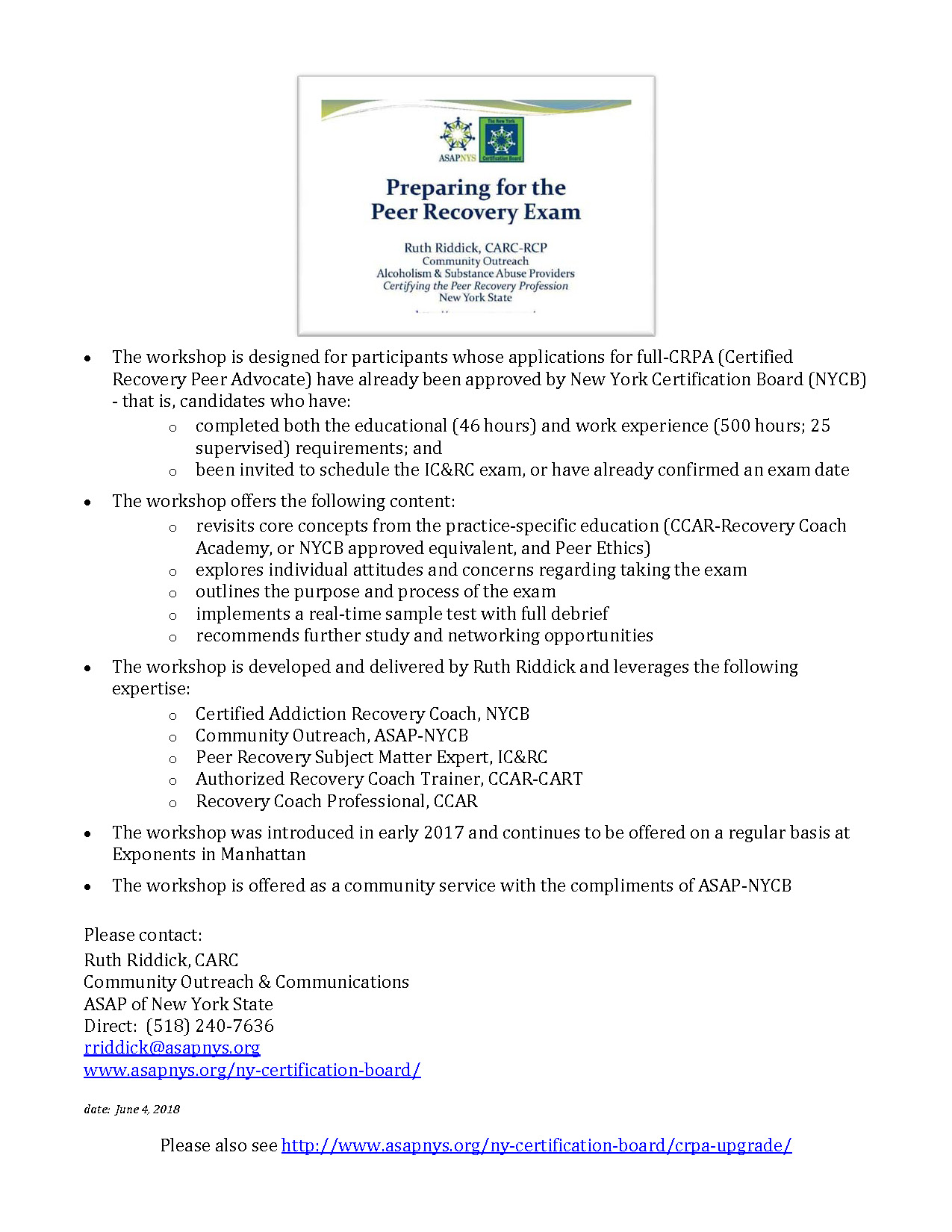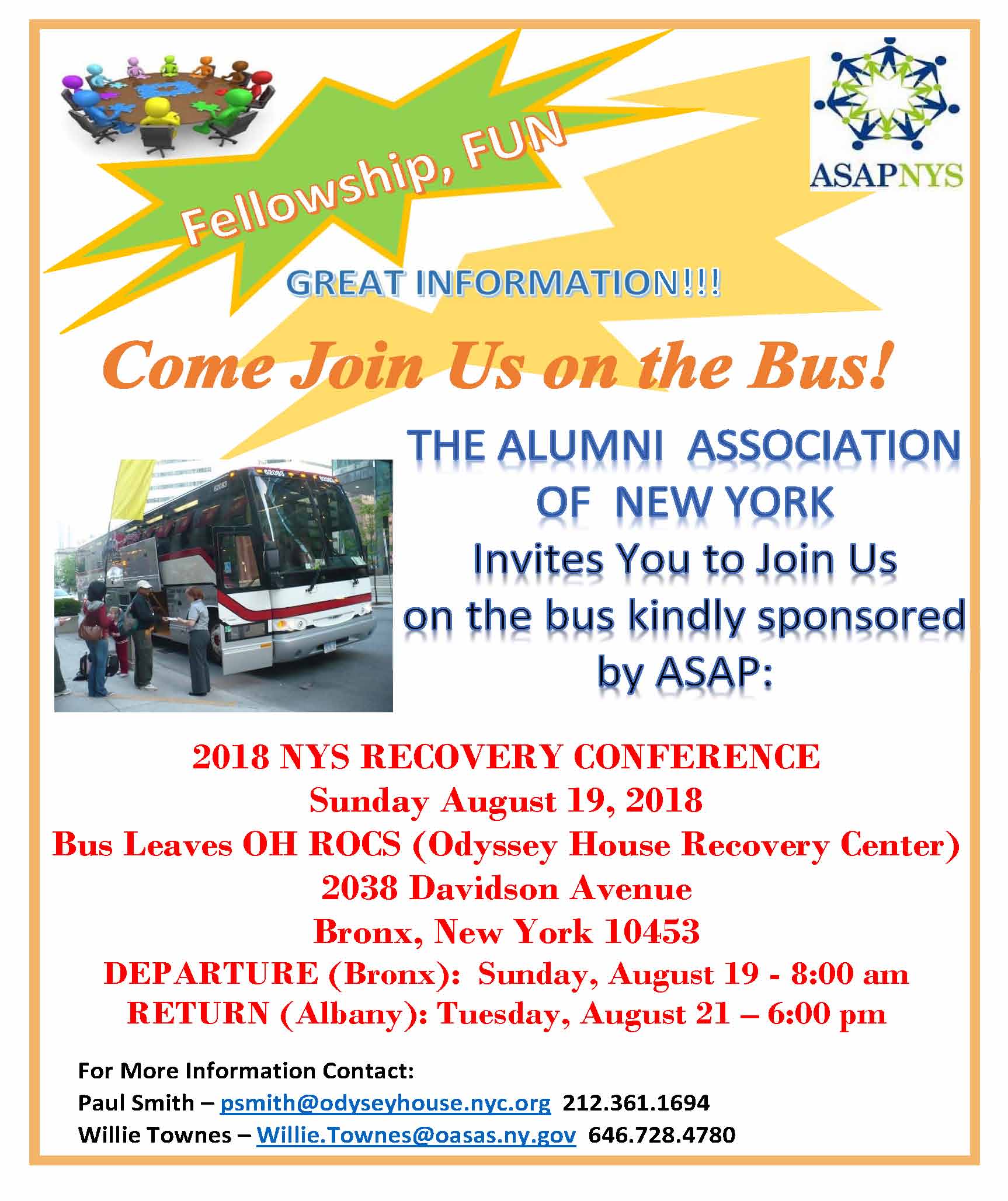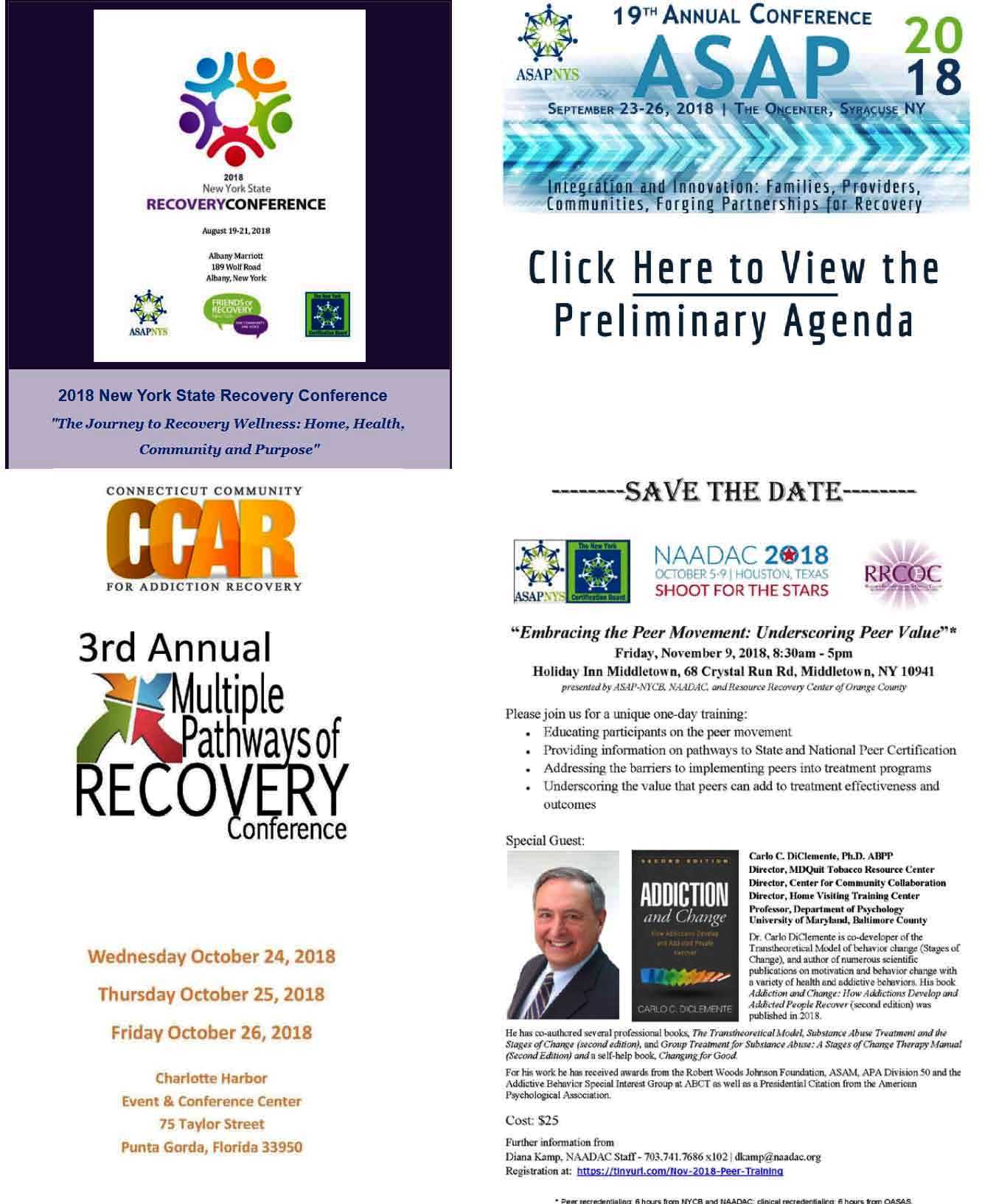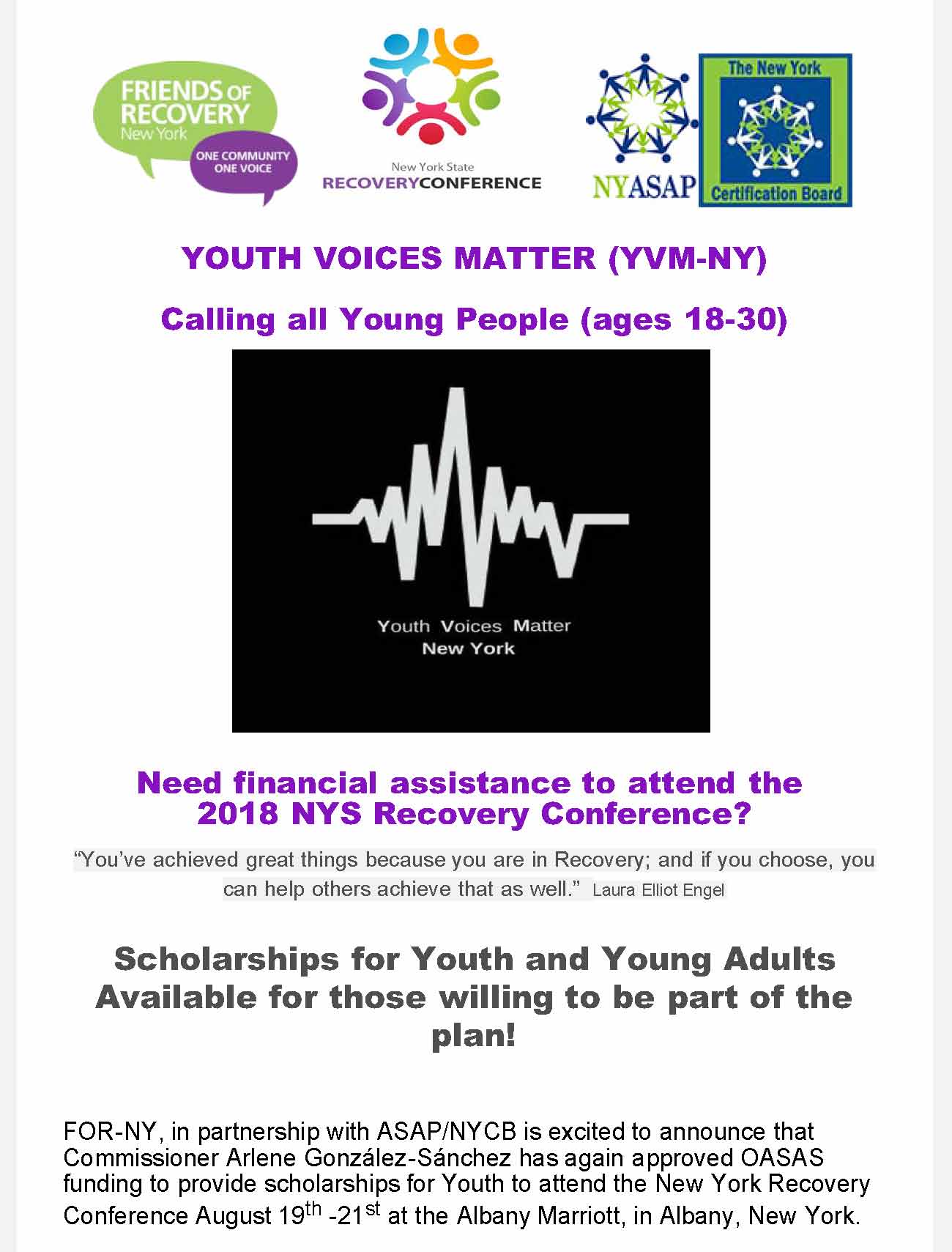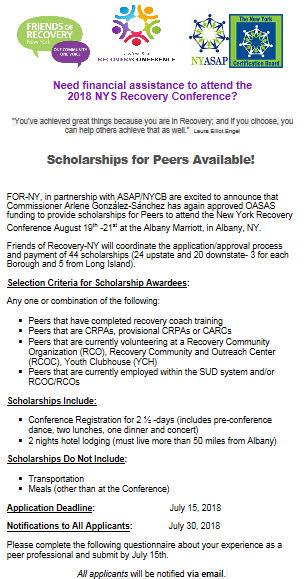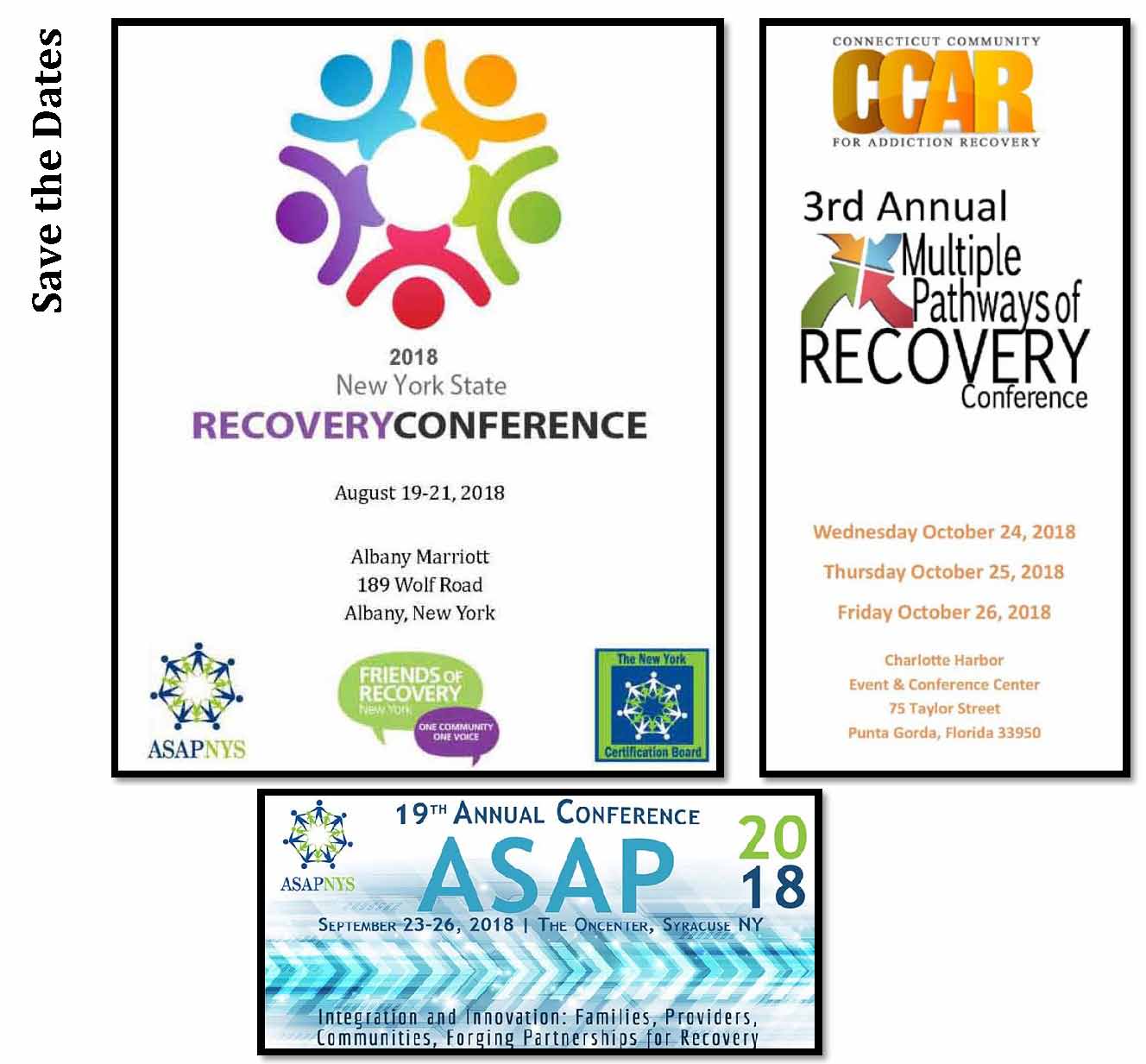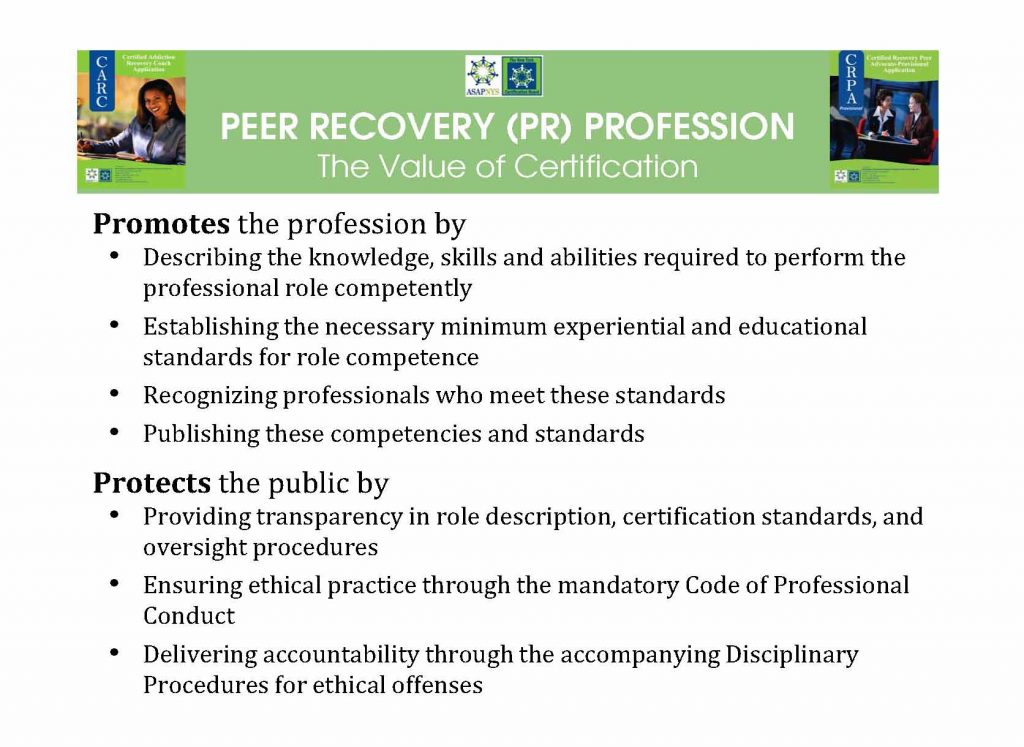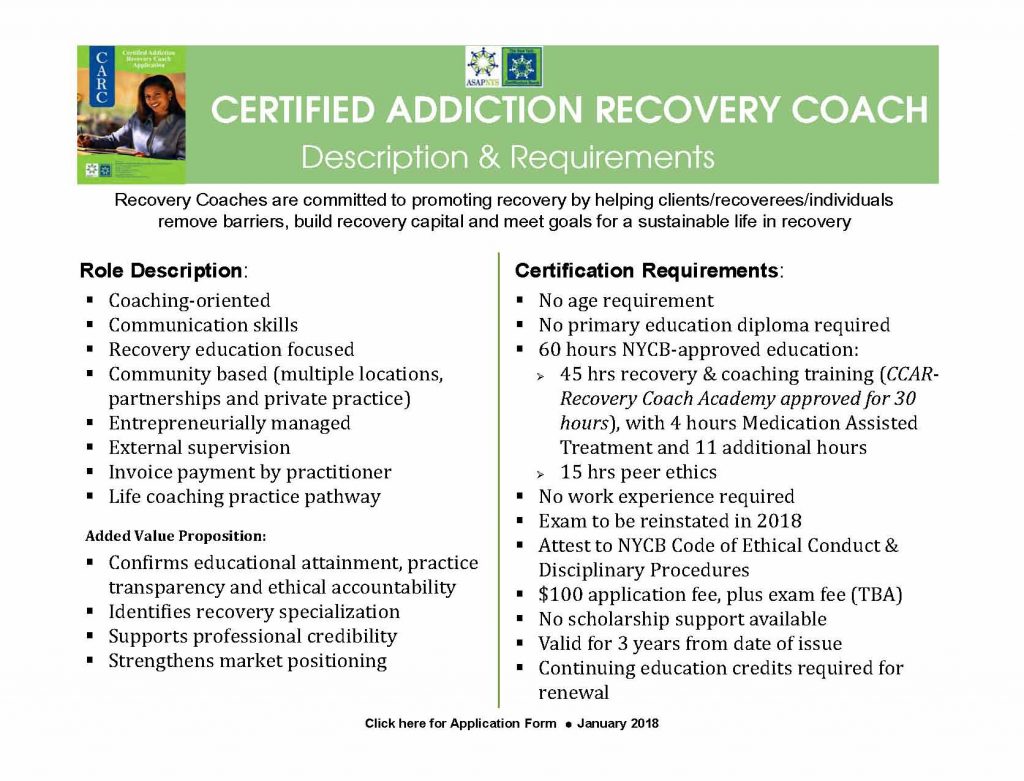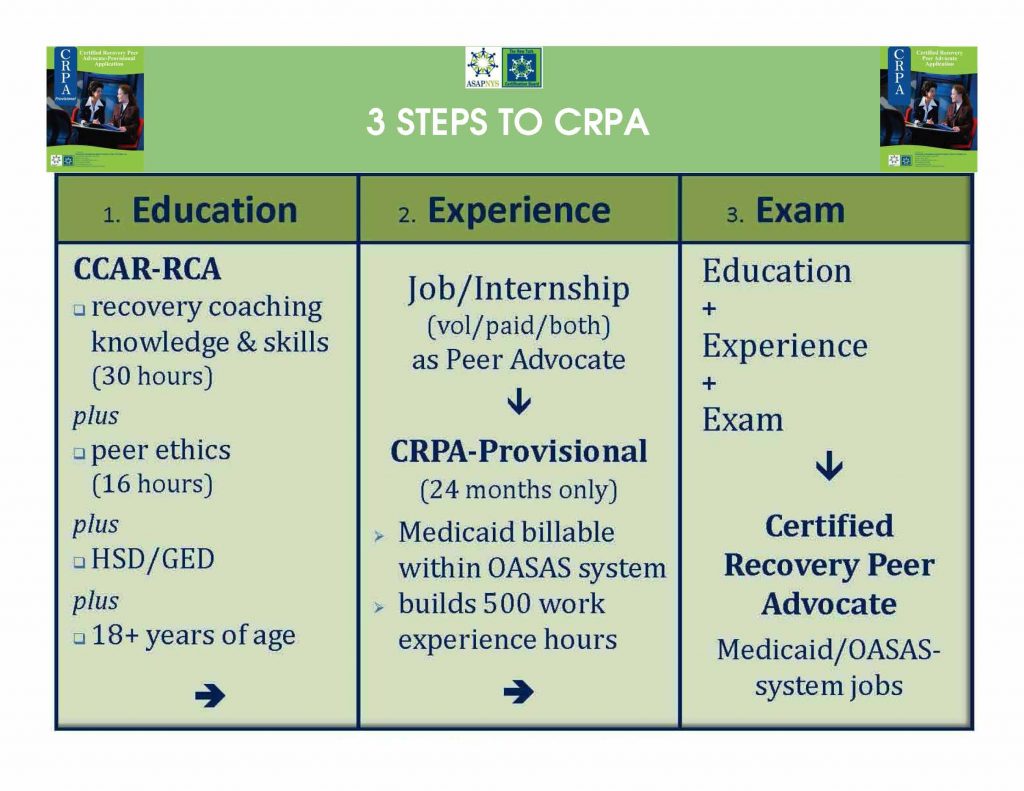The IUA–New York Certification Board defines a Certified Recovery Peer Advocate (CRPA and CRPA-Provisional) as an individual who provides outreach, advocacy, mentoring, and recovery support services to people seeking or sustaining recovery from substance use disorders.
For the purpose of certification, a Certified Recovery Peer Advocate is considered a professional who has demonstrated competence in a range of activities outlined in the IC&RC Peer Recovery Job Task Analysis and the IC&RC Peer Recovery Candidate Guide (2025) available here.
To become certified as a CRPA, candidates must demonstrate completion of the required education and training aligned with the performance domains: Advocacy, Ethical Responsibility, Mentoring/Education, Recovery/Wellness Support, and Harm Reduction, as outlined in the IC&RC Peer Recovery Job Task Analysis. Click here for the full list of domains and associated competencies (Knowledge, Skills, and Abilities).
CRPA-Provisional Certification Requirements:
- Must be at least 18 years of age.
- Live or work in New York State at least 51% of the time at the point of application and testing.
- Must have a high school diploma, GED, or equivalent (or a higher academic credential).
- Must complete 46 hours of NYCB-approved training in the Peer Recovery (PR) performance domains, plus 4 hours of training in Medication Supported Recovery.
- Agree to abide by the NYCB Code of Ethical Conduct by signing the appropriate section in the CRPA and/or CRPA-Provisional application.
- A copy of the Code of Ethical Conduct is available for download at: https://www.asapnys.org/ny-certification-board/
- Candidates are bound by this code from the date their certification application is submitted.
CRPA or CRPA Upgrade Applicants must meet all CRPA-Provisional requirements listed above and the following additional requirements:
- Complete 500 hours of supervised volunteer or paid work experience specific to the Peer Recovery (PR) performance domains.
- Receive 25 hours of mentoring and/or supervision specific to the PR domains.
- Achieve a passing score on the IC&RC Peer Recovery (PR) Examination.
Important Note on Work and Supervision Hours:
Work and supervision that occurred in a treatment setting while the candidate was receiving services in that same setting (either inpatient or outpatient) will not be accepted toward certification requirements.
To prevent any appearance of a conflict of interest, the following policy applies:
- Role experience and supervision in a treatment setting while the candidate is receiving services in that setting does not meet the requirements for CRPA certification.
- However, role experience in a treatment setting may be considered for candidates in long-term medication-supported recovery, provided all of the following conditions are met:
- The candidate does not access confidential information about other service recipients.
- The candidate is not performing in a dual role, i.e., simultaneously receiving services alongside individuals to whom they currently (or previously) provide peer services.
- The candidate recuses themselves from providing services when a potential dual-role conflict arises, in order to prioritize their own recovery.
In alignment with our “recovery-first” policy, the IUA–New York Certification Board strongly recommends that all candidates prioritize building a strong personal recovery foundation before pursuing vocational employment in the peer recovery field.
CRPA & CRPA-Provisional Candidate Resources
- CRPA Certification Guide
- Upgrade to CRPA Guide
- IC&RC Peer Recovery Exam Process Guide
- Supervisor Guide
- CRPA Renewal Information
- NYCB Role Experience Form for CRPA & Upgrade Applications
- Peer Recovery Exam Prep Workshop
Questions: please contact Elisabeth Kranson at ekranson@iuany.org or Cathie Gifford at cgifford@iuany.org.
